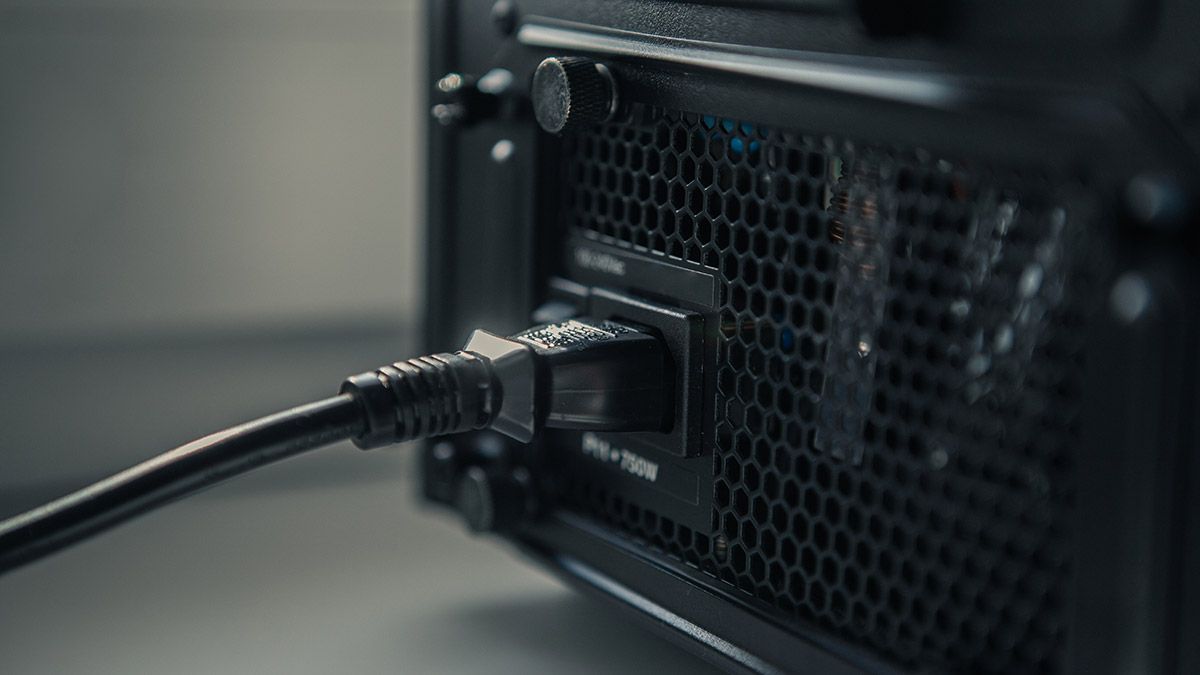It's never a great feeling when you suspect a PC component is failing, and it's a particularly bad feeling if you suspect it's the PSU. Here are some telltale signs your PSU is not long for this world.
When In Doubt, Test Your PSU
When there's a pop sound and bunch of smoke wisps upward out of the back of your PC directly from the PSU fan exhaust, you don't exactly need an advanced degree in the subject to deduce that your PSU is dead.
But not all PSU problems are so dramatic and immediately apparent. In fact, a lot of the signs that your PSU is failing are easy to confuse for other computer problems.
With that in mind, we recommend if you have even the slightest suspicion that your PSU might be the culprit that you test the PSU directly. You can test it with either a dedicated PSU tester or using a digital multimeter.
These Issues Can Indicate PSU Failure
Curious if your problems should guide you towards testing and potentially replacing your PSU? Here are some issues caused by a failing PSU.
Smoke or Burning Smells
While visible fire and smoke billowing out the back of your PSU are obvious signs, be wary of anything that smells like ozone, smoke, or faintly of plastic burning.
While the end of the PSU's life might be a dramatic snap, crackle, pop, there are often little signs something is going wrong ahead of time---like cable insulation melting and burning slightly as components fail.
Touching Your Computer Case Shocks You
If you touch the case of your computer, or even an attached peripheral, and you get a shock, you shouldn't ignore it.
Somewhere in your computer, the shielding and grounding are failing and that energy should have followed the ground through the PSU and into the grounded wall outlet instead of into your body.
Random Computer Shut Downs or Restarts
Aging or malfunctioning PSUs can cause random and seemingly unexplained shut downs or random restarts.
The reasons are numerous and can include thermal overloading because the PSU is dirty or the components are failing, failing capacitors, or an intermittent short in the PSU.
Difficulty Starting from a Cold Boot
Just like an old car battery can make it hard to start your car, an old or failing PSU can make it hard to start your computer. The time between when a PSU is turned on and when the computer has the full and required voltage across all the connectors is referred to as the PG (Power Good) measurement.
That time between power on and power fully ready should be less than half a second (the acceptable window is 100-500 milliseconds). You can measure your PSU's PG with a PSU tester.
If it's outside that range, the computer can have erratic boot issues or may even get stuck in a boot loop where it crashes before completing the boot process and loading the operating system.
Shutting Down When the Computer is Under Heavy Load
As your PSU gets older, even if it hasn't failed yet, it becomes less efficient and less able to meet the peak demand advertised for the unit.
Between that and the fact that aging components and capacitors just won't work as well as they used to under heavy strain, it's not unheard of for a PSU to work fine when you're doing something lightweight (like browsing the web and reading articles about PSUs) but stumble when put under a demanding load.
Blue Screens or Similar Errors
Blue screen errors can be unbelievably frustrating, and doubly so when you're getting them because issues with your PSU are causing power dropouts, undervolting, and otherwise causing PC components to function unexpectedly.
If you're tearing your hair out troubleshooting blue screen errors you just can't seem to pin down, it's worth testing your PSU to ensure your ghost-in-the-machine problem isn't related to power stability and delivery.
PSU Fan Failure or Grinding
Most PSUs on the market are actively cooled, which means they have a fan. If you hear a grinding or metal-on-metal squealing noise coming from the PSU, the fan is most likely failing.
If the PSU fan isn't spinning at all (and you don't have a higher-end PSU with a variable speed on-demand fan) that's also a bad sign.
PSU fans are not meant to be user serviceable. Even though they might sometimes be a standard size in terms of diameter, they usually don't have a standard connector and are, more often than not, soldered directly to the internal board right next to other PSU components.
Given that opening up a PSU and touching components can kill you, we recommend you not attempt to service or replace the fan and simply consider the fan dying as a sign that the PSU should be replaced.
It's Emitting a Whining Sound
Most electronic devices make a faint noise that people with sensitive hearing can detect. Even if you don't have the most sensitive hearing in the world, a tiny bit of detectable "whine" beyond just the sound of the actual cooling fans running is often detectable.
That faint whine noise comes from the transformer and coils inside the PSU. A little noise isn't a big deal and is sometimes unavoidable. After a lot of use, the heating and cooling of the different components can sometimes loosen the epoxy that secures them down (and helps dampen the noise). Despite a little increase in noise, the PSU might work for years and years without issue.
But a noticeable increase in whining noise, especially suddenly, can indicate one or more of the larger electrical components in the PSU is on the way out---you really shouldn't leave the PSU running to find out what the final effect of the electrical whine crescendo might be.

